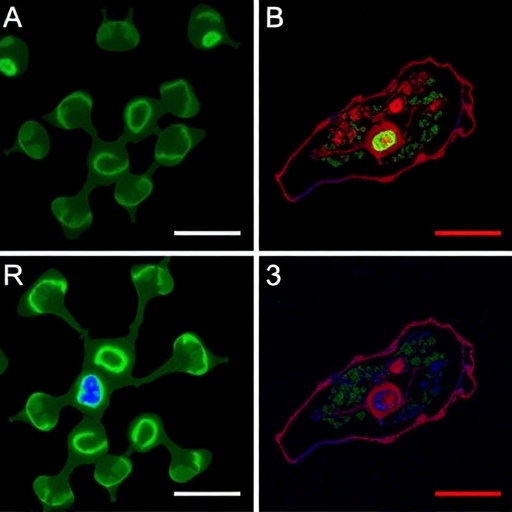(Boston) — Researchers at Boston Medical Center (BMC) have reported that a new heart imaging test can determine whether cardiac amyloidosis patients are expected to survive after a stem cell transplant. They accomplished this by analyzing the results of an echocardiogram–a standard ultrasound test that assesses the heart's functionality. The findings, published in the European Heart Journal – Cardiovascular Imaging, may change the way doctors predict who will benefit from stem cell transplants in this disease.
Light-chain or AL amyloidosis is a rare disease that occurs when an abnormal protein called amyloid builds up in an organ, including the heart. There is no definitive cure for AL amyloidosis, however treatment can help limit further production of the amyloid protein and prolong survival significantly. The most effective treatment combines a potent chemotherapy drug called melphalan with autologous stem cell transplantation (ASCT). With this treatment, a patient's blood stem cells are collected, the bone marrow cells that produce the toxic amyloid precursor protein are destroyed, and then the stem cells are reintroduced. Once a patient undergoes a stem cell transplant, patients are closely monitored using blood biomarkers and echocardiograms to assess improvements in their heart.
The Amyloidosis Center at Boston University School of Medicine (BUSM) and BMC is recognized internationally as a leader in basic and clinical research on amyloidosis–treating over 400 patients each year.
"We've known for some time that a disconnect exists between the symptomatic and clinical improvement we see in patients after their stem cell transplant with echocardiographic measurements of heart function," said Frederick L. Ruberg, MD, director of advanced cardiac imaging at BMC and associate professor of medicine and radiology at BUSM, who serves as the study's corresponding author. "These measurements seem to take much longer to show improvement."
Ruberg and his team, including Francesco Salinaro, MD, the paper's first author and a visiting scientist from Italy, evaluated the echocardiograms of over 60 cardiac AL amyloidosis patients to determine if a new measure, called a longitudinal strain, would be predictive of survival at one year after stem cell transplantation. They found that strain not only predicted survival, but outperformed other conventionally measured biomarkers found in the blood.
Additionally, researchers discovered that the strain pattern abnormalities characteristic of cardiac amyloidosis improved following treatment. These strain improvements were seen before changes were detected in any of the more conventional echocardiographic measures, such as wall thickness or ejection fraction.
"While these findings are consistent with other studies looking at cardiac function in patients with AL amyloidosis, this report was the first to study exclusively patients with cardiac involvement." said Ruberg. "Having these additional data will allow us to make more informed decisions about which treatments would be most beneficial for our patients."
###
This study was supported by the American Heart Association and Amyloidosis Foundation Junior Research Award.
About Boston Medical Center Boston Medical Center is a private, not-for-profit, 487-bed, academic medical center that is the primary teaching affiliate of Boston University School of Medicine. It is the largest and busiest provider of trauma and emergency services in New England. Committed to providing high-quality health care to all, the hospital offers a full spectrum of pediatric and adult care services including primary and family medicine and advanced specialty care with an emphasis on community-based care. Boston Medical Center offers specialized care for complex health problems and is a leading research institution, receiving more than $119 million in sponsored research funding in fiscal year 2015. It is the 11th largest recipient of funding in the U.S. from the National Institutes of Health among independent hospitals. In 1997, BMC founded Boston Medical Center Health Plan, Inc., now one of the top ranked Medicaid MCOs in the country, as a non-profit managed care organization. It does business in Massachusetts as BMC HealthNet Plan and as Well Sense Health Plan in New Hampshire, serving more than 315,000 people, collectively. Boston Medical Center and Boston University School of Medicine are partners in the Boston HealthNet – 13 community health centers focused on providing exceptional health care to residents of Boston. For more information, please visit http://www.bmc.org.
Media Contact
Jenny Eriksen Leary
[email protected]
617-638-6841
@BostonUNews
http://www.bmc.org
############
Story Source: Materials provided by Scienmag




